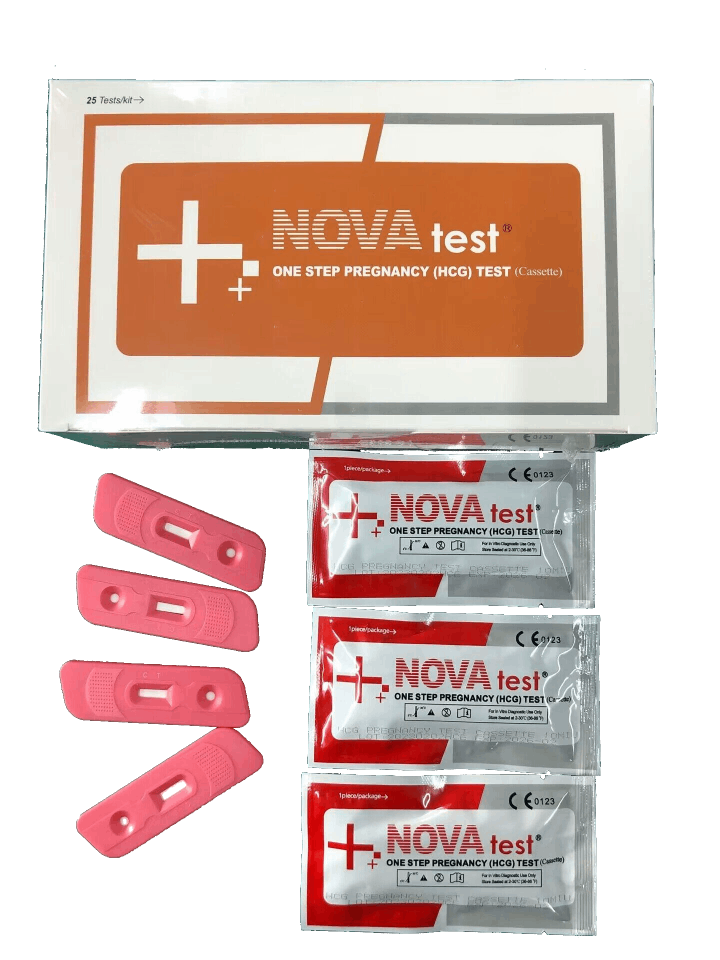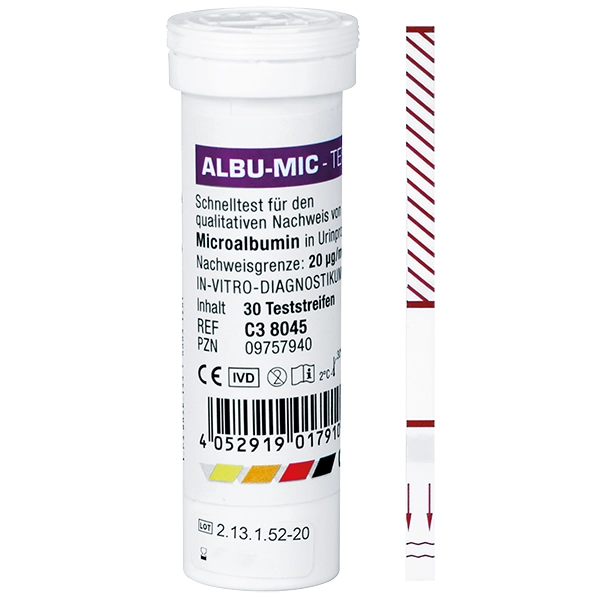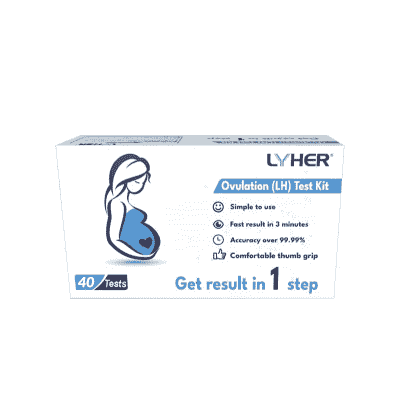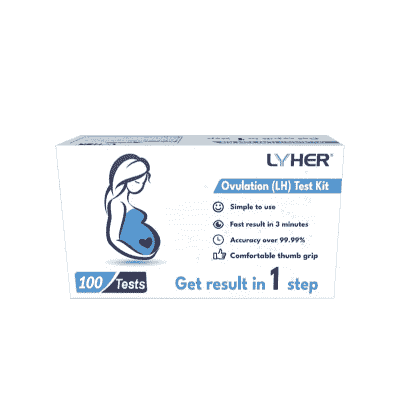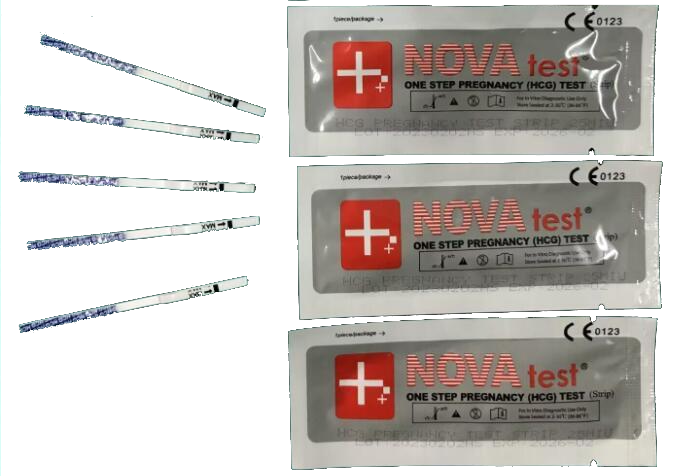Buy Urine Tests
In our OdemShop, you'll find a wide range of urine tests, providing a quick and easy method for diagnosing various conditions.

Urine Tests
In the realm of medical diagnostics, urine tests stand as a fundamental tool, offering a non-invasive yet revealing window into the complexities of human health.
As healthcare professionals in Ireland and beyond integrate urine testing into patient care protocols, the implications of these tests for disease detection, monitoring, and the personalization of treatment plans become increasingly significant.
What are the Different Types of Urine Tests?
A standard urinalysis is the most common urine test, which assesses physical, chemical, and microscopic characteristics to detect disorders such as urinary tract infections and kidney disease.
Other specialized urine tests include home-based test kits for specific conditions, comprehensive 24-hour urine collections for quantitative analysis, and hormone-based pregnancy tests that confirm gestation by detecting human chorionic gonadotropin (hCG).
Understanding Urinalysis
Utilizing a urine sample, the dipstick test offers a preliminary test result, flagging potential kidney disease, among other conditions. This method is crucial for the early diagnosis and management of renal and systemic diseases.
24-Hour Urine Collection
Among the plethora of urine tests employed for medical diagnosis, the 24-hour urine collection stands out as a comprehensive method that assesses the body's waste products over an entire day, offering valuable insights into a patient's metabolic functions.
This procedure requires individuals to collect urine periodically throughout a day, measuring the amount of urine and analyzing constituents like the levels of protein in urine, to monitor renal performance accurately.
Pregnancy Tests using Urine
Moving from the general utility of urine analysis in monitoring renal performance, we now focus on urine-based pregnancy tests, which are designed to detect the presence of human chorionic gonadotropin (hCG), a hormone produced during pregnancy.
Users collect a urine sample at home and apply it to a test strip. A change in urine color indicates a chemical reaction, with a positive test confirming potential pregnancy.
Here you will find our main categories:
Use Cases for Urine Tests
Urine tests serve as critical tools in the detection and monitoring of various health conditions. They are instrumental in assessing kidney function by measuring waste products and in identifying urinary tract infections through the presence of pathogens.
Additionally, these tests can reveal signs of kidney disease, monitor metabolic products such as ketones, and detect abnormal substances like protein and blood, which may indicate underlying health issues.
Assessing Kidney Function
The evaluation of renal function is a critical application of urine tests, providing essential insights into the health and performance of the kidneys.
Detecting blood or protein in your urine can indicate kidney disease or the presence of kidney stones.
Assessments of kidney function through urine analysis are imperative for early diagnosis and management of renal pathologies, ensuring prompt treatment and monitoring of disease progression.
Detecting Urinary Tract Infections
One of the most common applications for urine tests is the detection of urinary tract infections (UTIs), conditions that often present with symptoms such as pain during urination, urgency, and cloudy or strong-smelling urine.
Presence of white blood cells indicates an immune response to infection.
Leukocyte esterase is a marker for inflammation, often due to UTIs.
Urine culture isolates and identifies bacteria in the urine.
Timely diagnosis can prevent complications and ensure appropriate treatment.
Identifying Signs of Kidney Disease
Moving beyond the realm of infections, urine tests also play a crucial role in the early detection of kidney disease by identifying abnormal protein levels and other key indicators of renal function.
The presence of protein in urine, often a sign of kidney disease, requires immediate medical attention.
Finding blood in your urine can also indicate a kidney problem, and abnormal results warrant a comprehensive evaluation by a healthcare professional.
Monitoring Urine for Ketones
Detecting ketones in urine is a critical diagnostic tool for monitoring metabolic conditions, such as diabetes, through the assessment of fat breakdown products.
A urine test strip's change color signals elevated ketone levels.
Prompt detection can prevent diabetic ketoacidosis.
Accurate urinalysis results guide immediate medical interventions.
Visual color grading aids in monitoring disease progression or dietary compliance.
Such testing remains an essential, non-invasive method in patient care.
Detecting Protein and Blood in Urine
The presence of protein and blood in urine, commonly referred to as proteinuria and hematuria respectively, serves as a vital indicator for various medical conditions, ranging from urinary tract infections to kidney disease.
Urinalysis is a test that can detect urine protein and microscopic red blood cells, providing essential data to diagnose ailments affecting the kidney or urinary tract.
Confirmatory blood tests often accompany urinalysis to ensure accurate diagnosis and management.
How to detect kidney inflammation by urine test?
After looking at how to distinguish cystitis from other conditions using a urine test, let's take a look at how to detect kidney inflammation through a urine test.
A common characteristic used to diagnose kidney inflammation is the level of leukocytes in the urine. Some tests measure the percentage of white blood cells in samples of fresh urine, providing clues to inflammatory processes or infections.
The following table provides information on the leukocyte value that can normally be expected:
Lower limit (/µL) |
Upper limit (/µL) |
|---|---|
0 |
5 |
6 |
10 |
11 |
20 |
21 |
50 |
It should be noted, however, that the leukocyte content alone is not used as an indicator for an accurate diagnosis. Rather, further tests can confirm or invalidate the suspicion. In addition, women have female hormones that can influence the value. Therefore, one should always do several tests to ensure that the diagnosis is as accurate as possible.
So, urine tests help diagnose various diseases - but what contribution does it make in diabetes?
Interpreting Urinalysis Results
Interpreting the results of a urinalysis requires a comprehensive understanding of the various parameters and their normal ranges. Abnormal findings can be indicative of underlying conditions affecting the kidneys, liver, or bladder, necessitating a thorough evaluation and correlation with patient symptoms and history.
Recognizing the significance of these deviations from the norm is critical for the accurate diagnosis and management of potential health issues.
Understanding Different Parameters in Urine Analysis
Analyzing the various parameters in urine analysis provides clinicians with critical insights into a patient's renal function and overall health status.
Presence of microscopic red blood cells may indicate underlying kidney or urinary tract issues.
Elevated substances in the urine can signal metabolic or endocrine disorders.
Abnormal urinalysis test results often warrant further investigation for accurate diagnosis.
Detecting bilirubin in your urine could suggest liver dysfunction or hemolysis.
Significance of Abnormal Urinalysis Results
Abnormal results in urinalysis can serve as important diagnostic markers, pointing to a range of potential health issues that may require further medical evaluation.
The presence of microscopic red blood cells may indicate kidney damage or urinary tract disorders.
An abnormal urinalysis result showing elevated bilirubin levels, assessed through a bbilirubin urine test, could suggest liver dysfunction.
Each abnormal finding warrants a meticulous clinical correlation.
Linking Urine Test Results to Potential Kidney Problems
Given the critical role of kidneys in filtering blood and producing urine, certain changes in urinalysis results may be indicative of renal pathology.
Protein Presence: A sign of kidney distress; should be absent in a healthy urine sample for a urinalysis.
Blood Traces: Can signal kidney issues or urinary tract infections.
Elevated Creatinine: Points to compromised kidney function.
Abnormal Glucose: Suggestive of diabetes-related kidney damage, as highlighted by the National Kidney Foundation.
Identifying Possible Liver or Bladder Conditions from Urinalysis
Urinalysis can reveal important clues about liver and bladder health. Certain biomarkers are indicative of dysfunction or disease in these organs. The presence of bilirubin or urobilinogen in urine may suggest liver disease. An elevated count of red blood cells could signal bladder conditions. Interpreting these urinalysis results requires meticulous analysis. Accurately diagnosing and managing the underlying health issues is essential.
Buying and Using Urine Test Kits in Ireland in Wholesale
For businesses in Ireland seeking to procure urine test kits in bulk, OdemShop emerges as a leading supplier renowned for its comprehensive inventory and efficient delivery services throughout Europe.
Unmatched reliability for health care professionals
Clear, specific instructions included
Simplified process for those asked to collect the sample
Diverse range of kits for different tests
OdemShop stands committed to supporting efficient health monitoring with top-quality urine test kits.
Here you will find our main categories:




